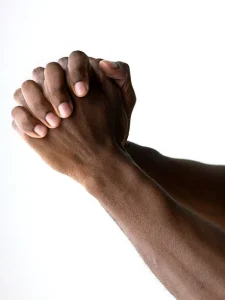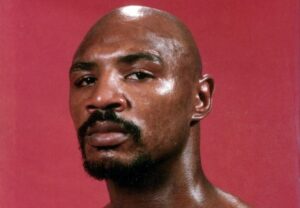Nearly half of young black men in Chicago are neither in school nor working, a staggering statistic in a bleak new youth unemployment report that shows Chicago to be far worse off than its big-city peers.
To 24-year-old Johnathan Allen, that’s no surprise.
“It’s right there in your face, you don’t need statistics,” Allen said as he testified before a room full of lawmakers and public officials Monday at an annual hearing about youth unemployment, where the report was presented. He encouraged everyone to walk down the street and witness how joblessness devastates communities.
“Speaking about it every year ain’t doing it,” he said.
Forty-seven percent of 20- to 24-year-old black men in Chicago, and 44 percent in Illinois, were out of school and out of work in 2014, compared with 20 percent of Hispanic men and 10 percent of white men in the same age group, according to the report from the University of Illinois at Chicago’s Great Cities Institute.
The numbers for black men are far worse in Chicago and Illinois than elsewhere in the country. In Los Angeles and New York City, 31 percent of black 20- to 24-year-old men were out of school and out of work, in line with the national average of 32 percent.
While declines in youth employment across all races have raised concerns for a number of years, the new report puts into stark focus the connection between unemployment and Chicago’s racially segregated neighborhoods that also are home to high rates of poverty and crime.
The report shows the highest concentration of youth unemployment is in neighborhoods on the city’s South and West sides, especially Fuller Park, Englewood, East Garfield Park and North Lawndale, each of which is more than 90 percent black. The lowest concentration is in mostly white neighborhoods on the North and Northwest sides.
“Conditions of joblessness are chronic, concentrated and comparatively worse than elsewhere in the country,” said Teresa Cordova, director of the Great Cities Institute. She called the prevalence of jobless among black males “definitely at crisis proportions.”
The report, commissioned by the Alternative Schools Network and based on census data, was presented Monday at the fifth annual hearing on youth unemployment, hosted by the Chicago Urban League at its headquarters in Bronzeville.
A parade of teens and young people from some of the city’s poorest neighborhoods described tough lives that were turned around by a job opportunity. The hearing comes as politicians debate school funding and a continued state budget impasse threatens funding to nonprofits that offer employment programs, some of which have had to be suspended.
Allen, who lives in Back of the Yards, said he got in trouble for drug dealing and gang banging — the “same old, same old,” “everybody’s story,” he said — and was on house arrest and on parole when he connected with the Chicago Area Project, a nonprofit that works to prevent juvenile delinquency in disadvantaged communities. The group steered him toward a job in a youth mentorship program at the community group Fellowship Connection in Humboldt Park, where he helped with a documentary project and got his hands on a video camera for the first time.
Allen now works as an audiovisual technician for an equipment rental service. He hopes to train to be a security guard.
“I see people in my community who want to do better for themselves, but the only way they can do something better is that they have to make something happen,” he said, referring to illegal activities. “I’m a product of how good a job can be.”
That jobs give youths something productive to do with their time, as well as providing needed income, is not a revelation, but a study two years ago showed the measurable effect jobs have on curbing criminal behavior.
Working with the One Summer Chicago Plus jobs program, the University of Chicago Crime Lab found a 43 percent reduction in violent crime arrests for youths who secured eight-week-long part-time summer jobs with the program, compared with a control group of kids who didn’t, and the positive effect lasted 18 months after the program ended, said Kelly Hallberg, scientific director at the Crime Lab.
David Elam, 25, who testified alongside Allen at the hearing, credited a summer job with redirecting him when he was headed downhill — entrenched in a gang, selling drugs and expecting a child — as it taught him about having a work ethic, managing time and money, and getting up early for work.
“Young people can’t be what they can’t see,” said Elam, a youth organizer with a group called Fathers Who Care.
Counting men and women together, 41 percent of black 20- to 24-year-olds were out of work and out of school in Chicago in 2014, compared with 18.7 percent of Hispanics and 6.7 percent of whites in the same age group.
The racial divisions are also reflected among teenagers. Among 16- to 19-year-olds in Chicago, 14.3 percent of blacks are neither working nor in school, with boys much more affected than girls, compared with 6.8 percent of Latinos and 6 percent of whites.
Overall, 18 percent of 16- to 24-year-olds in Chicago are out of school and out of work, compared with 13.7 percent nationally, 16.4 percent in New York and 13.1 percent in Los Angeles.
Including people who are in school but don’t work, the joblessness rate is 57 percent in Chicago, compared with 51 percent nationally. More than 80 percent of 16- to 19-year-olds in Chicago are not working — a problem in poor communities where students are trying to support themselves or their families while they finish their studies.
Deshawn Muldrow, 17, who lives in North Lawndale and is a senior at CCA Academy, a charter school in his neighborhood, said he has been struggling to find a job to raise money for college and help support his family. His mother is unwell and can’t work, he said, so his grandmother works at a senior citizens home to support the three of them.
Muldrow, who wants to study math or statistics in college, said he has applied to jobs in retail shops, grocery stores and fast-food restaurants and, though he has gotten a few interviews, hasn’t landed an offer. His testimony seemed to stir something in Cook County Commissioner Robert Steele, one of about two dozen legislators in attendance, who called him over and gave him his business card, urging him to call for a possible job opportunity.
In the hallway afterward, Audrey Haywood, a history teacher at CCA Academy, gave Muldrow a big hug.
“I’m hopeful,” she said.
While the situation of young black men in Chicago is particularly striking, it is not the only group facing challenges. Teen Latinas experienced a 44 percent drop in employment from 2005 to 2014, the steepest drop among the groups measured.
Declines in teen employment over the last decade have raised alarms because young people aren’t getting early experience that helps them secure better jobs and higher wages down the road.
Related Information
How To Distinguish The Wrath Of God, From The Wrath Of Satan.





























